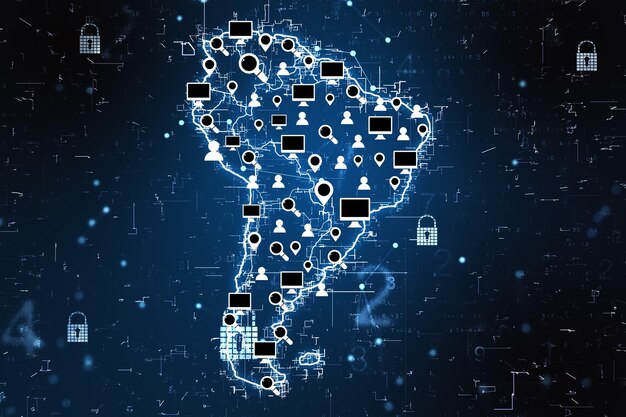Securing Africa’s Digital Future: Cyber Resilience as a Collective Imperative
Written By Maxine Ansah
As digital technologies increasingly shape our societies, Africa finds itself at a critical juncture. With digital transformation accelerating across the continent, including expanded mobile connectivity and the growing reliance on e-governance and online financial services, the need for robust cybersecurity has never been more urgent. The 2025 Cyber Stability Conference, hosted by the United Nations Institute for Disarmament Research (UNIDIR) as part of Geneva Cyber Week, brought this urgency into sharp focus. Under the theme “Crisis Averted: Cyber Resilience in Action”, the conference explored how the international community can prepare for and prevent cyber crises. For Africa, the message was particularly resonant.
The fictional crisis scenario set in the region of Dystopia illustrated what happens when cybersecurity is neglected. Attacks on air traffic control, healthcare systems and water supplies resulted in near-total societal collapse. Although hypothetical, the events mirrored real-world risks, highlighting how underprepared digital systems can jeopardise not only infrastructure but lives.
Africa is not immune to these dangers. In fact, its growing digital footprint makes the continent a prime target. Governments, businesses and individuals are increasingly facing cyber threats, ranging from phishing scams and data breaches to large-scale ransomware attacks. In 2024 alone, several African countries experienced disruptions due to malicious cyber activity, affecting hospitals, banks and public services. Globally, cyberattacks have often led to stolen data, paralysed operations and eroded public trust in institutions (International Telecommunication Union, 2024).
Despite these threats, cybersecurity remains underfunded and underprioritized in many African countries. According to the International Telecommunication Union’s Global Cybersecurity Index 2021, fewer than 20 countries on the continent had adopted comprehensive national cybersecurity strategies by the time of publication. Meanwhile, the African Union’s Convention on Cyber Security and Personal Data Protection, adopted in 2014, has yet to be ratified and domesticated by the majority of Member States (African Union Commission, 2022). This lack of legal harmonisation and capacity leaves gaps that cybercriminals can readily exploit.
The Cyber Stability Conference emphasised that cybersecurity cannot be confined to the responsibilities of IT departments. It is a national security issue, a public safety concern and, ultimately, a development challenge. This is especially true for Africa, where digital infrastructure supports economic growth, financial inclusion and access to public services. Cyber resilience must therefore become a shared responsibility. Panellists at the conference described it as a “team sport” that relies on wide participation.
For Africa, embracing this collective mindset means involving not only governments and private firms but also civil society, academia and international partners. One of the conference’s key messages was that people must remain at the heart of cybersecurity strategies. This is especially relevant on a continent with a large, youthful population eager to participate in the digital economy. By equipping young Africans with cybersecurity skills, governments can address the continent’s contribution to closing the global cybersecurity workforce gap, which was estimated at 4.8 million professionals in 2023 (ISC2 Cybersecurity Workforce Study, 2023).
Furthermore, the rise of artificial intelligence introduces new challenges. As speakers noted, AI can both strengthen and compromise cybersecurity. On one hand, it can enhance threat detection and response; on the other, it allows malicious actors to automate and refine attacks. African policymakers must therefore treat AI not only as a tool for innovation but also as a potential risk that requires careful oversight, ethical use and sound regulatory frameworks.
The international community has begun responding with stronger frameworks. The UN Convention against Cybercrime, adopted in December 2024, represents the first comprehensive global treaty to address cybercrime through multilateral cooperation and harmonised legal measures (United Nations General Assembly, 2024). In parallel, the ongoing work of the Open-Ended Working Group on security in the use of information and communication technologies, which includes all UN Member States, offers Africa a valuable platform to shape global norms and promote inclusive cyber governance.
During his keynote address, Will Smart, former Chief Information Officer of the UK’s National Health Service, recalled the severe consequences of the 2017 WannaCry ransomware attack. The incident disrupted hospital operations and clinical systems across the UK. Smart described how the attack prompted a fundamental shift in the NHS’s cybersecurity culture, viewing cyber threats as threats to human lives rather than merely technical failures (UK Parliament Public Accounts Committee, 2018). His warning is particularly relevant for African countries where healthcare systems are often already under strain. Proactive resilience must replace reactive crisis management.
The Cyber Stability Conference also made clear that trust, transparency and cooperation are critical. Speakers repeatedly stressed the importance of multistakeholder partnerships and international collaboration. For Africa, this means that cybersecurity must be mainstreamed into national development plans and regional integration efforts. It also calls for increased investments in capacity-building and the creation of cybersecurity hubs, such as the African Union’s Cybersecurity Collaboration and Coordination Committee.
As Africa advances its digital transformation, the understanding that digital opportunities come hand in hand with cyber risks must underpin all policy decisions. The way forward calls for more than advanced technology. It demands inclusive governance, strong institutions and a clear commitment to human-centred cybersecurity.
Only through coordinated, continent-wide efforts can Africa secure its digital future. Cyber resilience must be rooted in cooperation, built on trust and driven by the urgent recognition that what is at stake is not only information, but lives and livelihoods. It is not an optional goal. It is an imperative.








